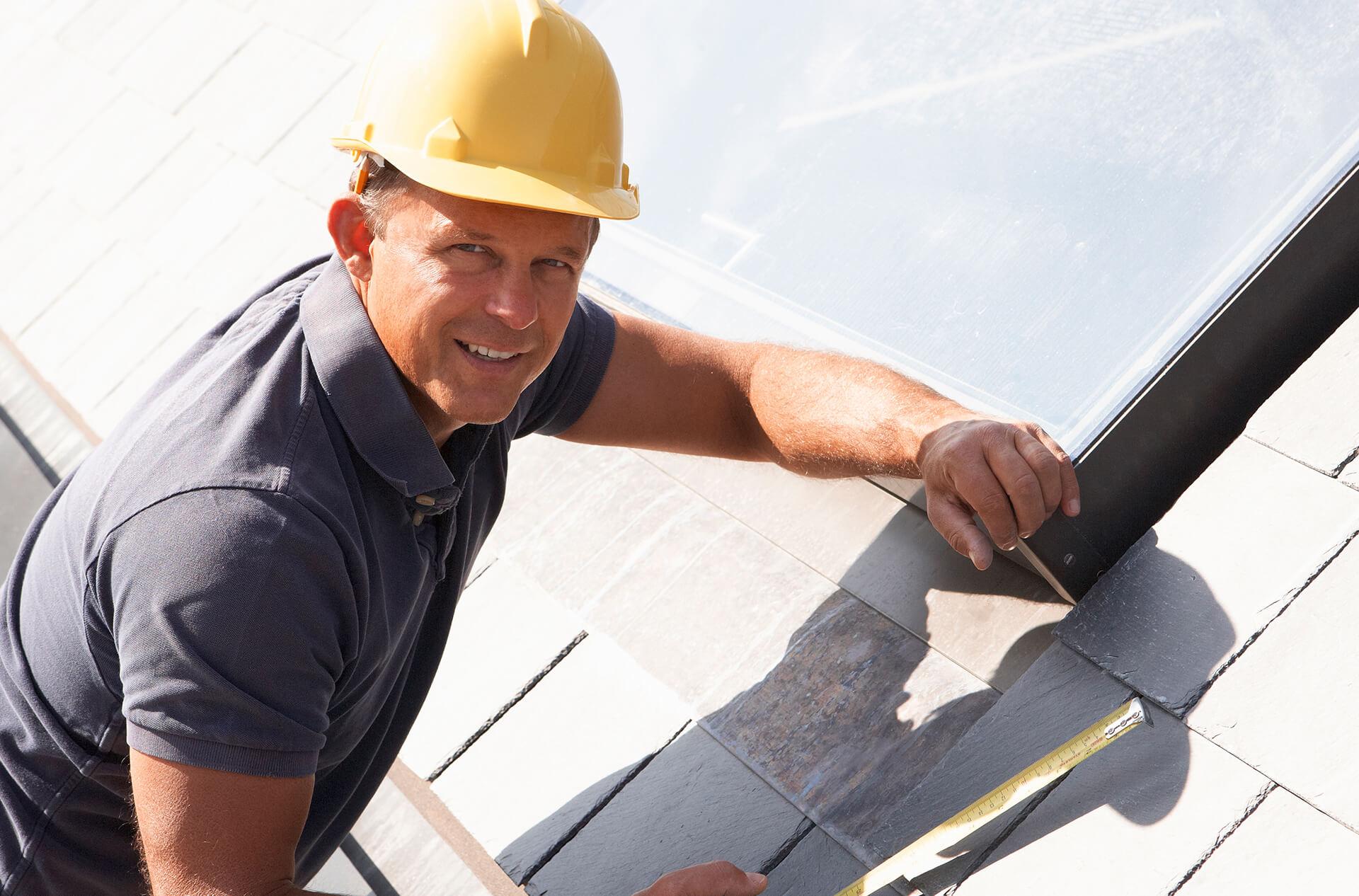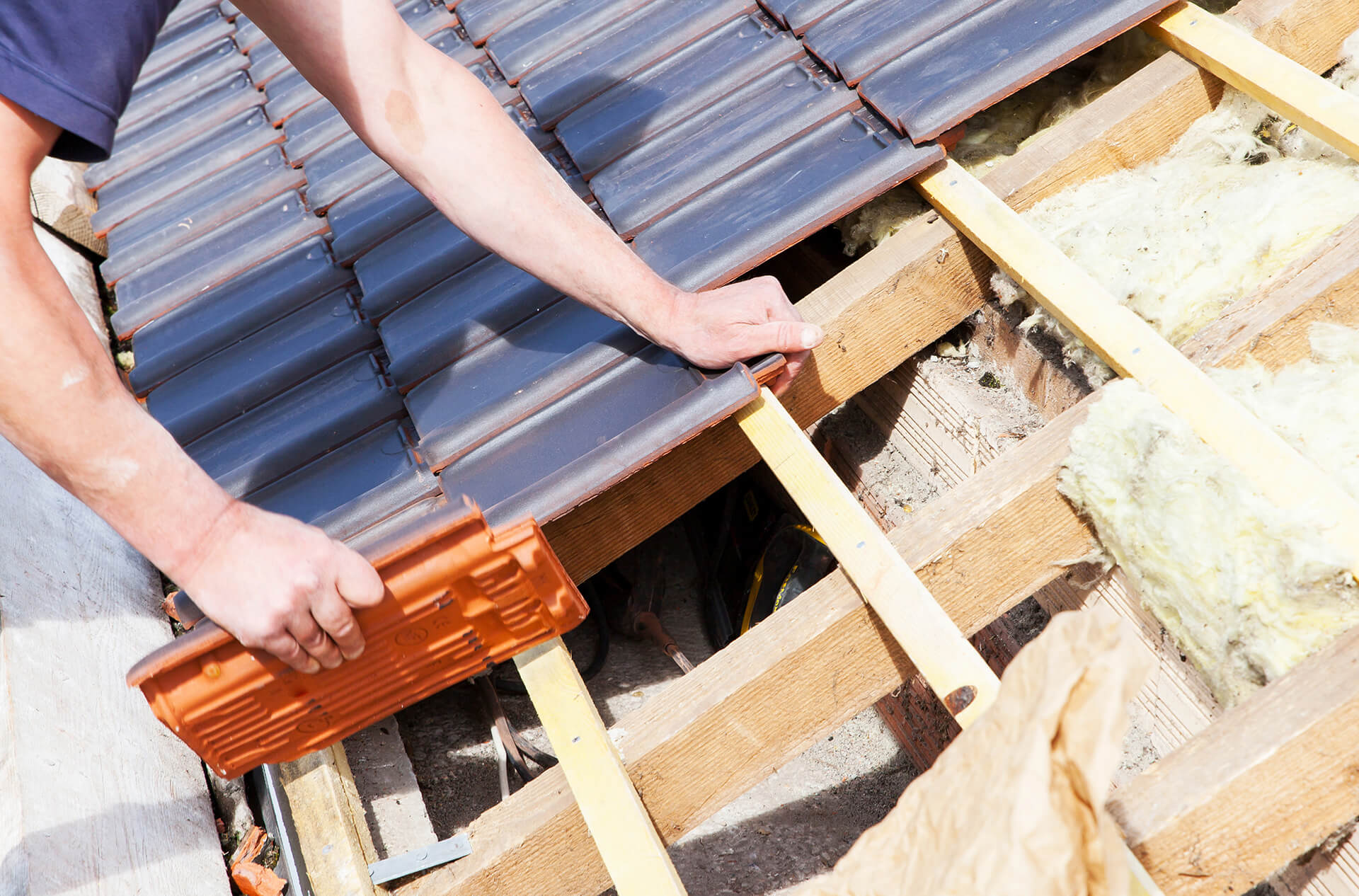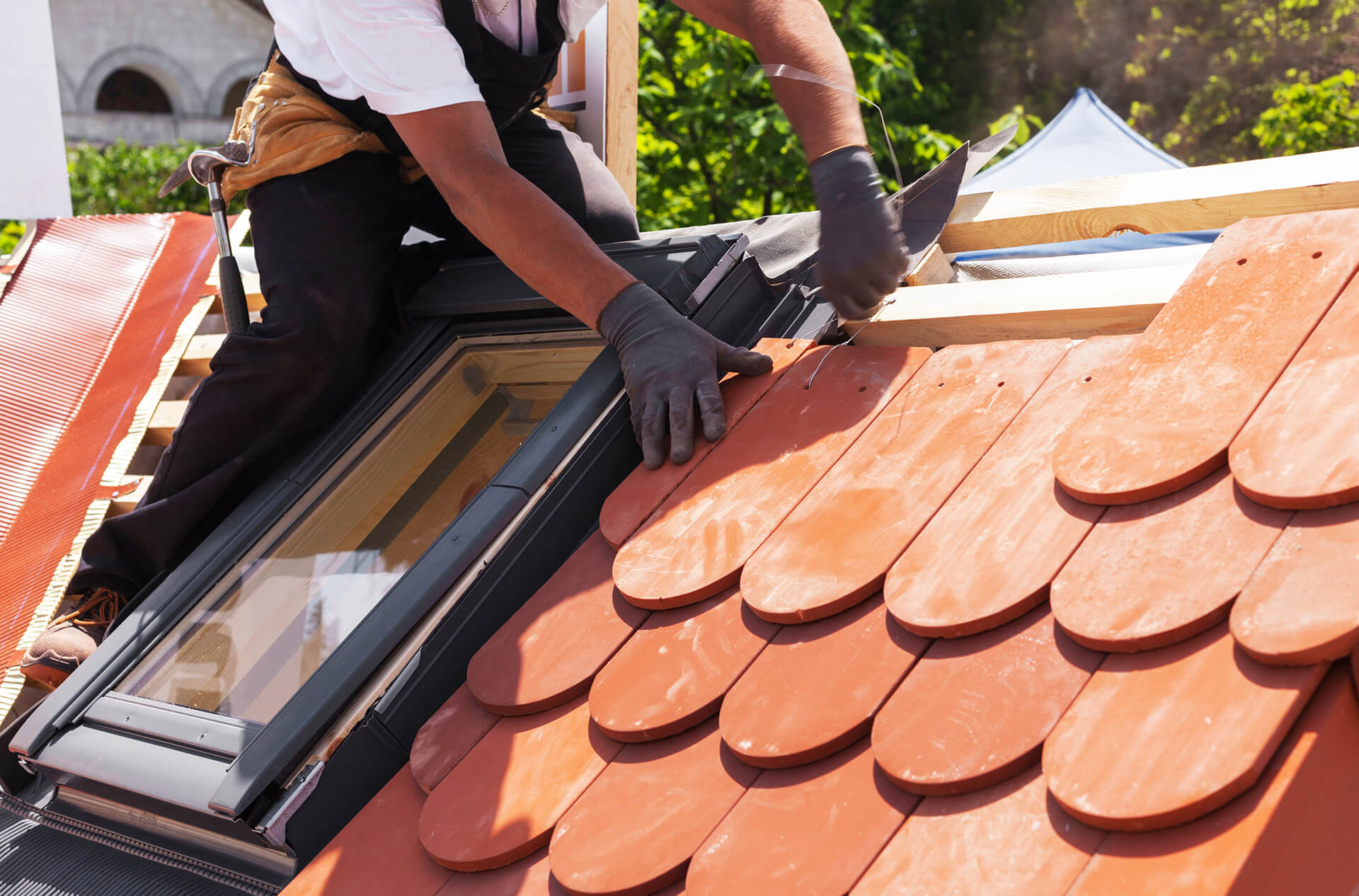Concrete Tiles
Concrete Roof tiles are made out of a cement mixture that is formed under intense heat and pressure. The tiles are colored by either adding colour to the cement mixture before its moulded or by covering the tile in a cement-based pigment.
Concrete roof tiles are chosen for their wide range of styles, profiles and colours available to the roofing industry. A concrete tile’s lifespan is typically set by manufacturers at around 30 years. However, these types have been found to last as much as 60 years minimum and maybe even longer. The longer lifespan can be made possible with the right form of maintenance. It’s wise to not only keep an eye on the quality of your roof over time but also hire professionals to take care of it. Concrete tiles are the most economical and durable roofing material on the market. Concrete tends to hold up better in extreme weather conditions.
Concrete tiles have been a popular choice of roofing material since their inception in 19th century Bavaria due to their outstanding durability. They are made of sand, cement, water, and iron oxide (pigment) mixed, moulded, and heated together and they serve as a water resistant and weather resistant roofing system over your homes. Today, concrete roof tiles are also known for their long-term value, energy efficiency, and versatile style. One of the great things about concrete tiles is that they are less expensive than clay tiles, or slate. If you like the tile roof look but have a smaller budget then concrete tiles are definitely the best option for you.
Concrete tiles are much heavier than slate or clay. Due to their manufacturing materials, their weight is riskier and as such care will need to be top priority. This is why installation of concrete roof tiles can be quite challenging, especially if your roof has complicated shapes, steep pitches, or penetrations like chimneys, pipes, and skylights. Therefore, a licensed professional roofing contractor like Taylor and Sons Roofing of Wakefield is recommended for proper installation.
The maintenance of concrete roof tiles is less and this is because it is only limited to the gutters, venting and protrusion flashing.



The Pros of Concrete Tiles
1. Cost effective
Concrete tiles are simple and easy to fabricate, a cost-effective perk that’s passed on to customers. Plus, when you factor in the long lifespan of concrete tile roofs, the pricing benefits are even more profound.
2. Durable and robust
When it comes to durability, concrete roof tiles run circles around some of the alternatives. Installed properly, concrete tiles offer excellent long-term performance and hold up against high winds, heavy rain and other wild weather.
3. A long lifespan
The average concrete tile roof has a lifespan of around 50 to 70 years which makes the material extremely cost effective in the long-term. Concrete tiles are virtually impervious to damage from rot and insects which means you won’t have to worry about decay.
4. Quick and easy installation
Labour costs are one of the biggest expenses associated with renovating or installing roofs. Quick and easy to install, concrete tiles overcome this challenge and offer customers excellent value for money.
5. Customise colours and styles
Incredibly versatile, concrete tiles can be customised to suit any architectural style. This makes them a great choice for projects of all shapes and sizes, whether you’re renovating a historic English farmhouse or building a modern home. Choose from a variety of different styles, including flat, fluted, curved or interlocking. Concrete roof tiles can also be tinted to suit your colour palette.
6. Minimal maintenance
Concrete roof tiles require little to no maintenance which means you and your bank account can rest easy. They’re also quick and easy for professionals to replace should a tile become cracked or damaged.
7. An eco-friendly choice
Not only does the long lifespan make concrete roofs an eco-friendly choice, they’re also constructed from natural materials and minerals which means you’re not contributing to chemical pollution. Should your roof ever need to come down the concrete tiles can be ground down and recycled instead of sent to landfill.
8. Energy efficient
Thanks to the heavy thermal mass, concrete tiles also offer an energy efficient edge, helping to trap heat during the winter and regulate indoor temperatures. This means you can turn down your central heating and save on your energy bills.
Problems With Concrete Tiles
1. Weight:
Concrete tiles much like most other tiles used in roofing are heavy. Standard Concrete tiles weigh from 900 lbs to 1200 lbs per square. This means that you will have to make sure the framing structure of the roof can support the additional weight if you decide on using concrete tiles.
2. Colour Fade:
Another disadvantage of Concrete tiles is that the colour pigmentation may fade as it ages. This can be an issue when the tiles are being repaired because the colour of the replacement tiles may not match that of the rest of the roof.

3. Efflorescence:
Concrete roofs are more porous than clay tiles and as a result they absorb more water than clay does. This effect is called Efflorescence. This may make the concrete look stained but can be cleaned off. It can also be sealed to help prevent moisture from being absorbed.
4. Brittle:
Concrete Tiles are durable and strong, but also brittle. They may break if they are not properly walked. This is why it’s important to hire a professional contractor like us if you ever need any work done on your concrete tile roof.
5. Technical Installation:
As with most other tile roof systems, Concrete tiles are technical to install. It requires roofers to cut the tiles to precise shapes to get them to fit exactly. It also involves layering the tiles in a specific pattern to ensure it will work properly and look good.
6. Tiles may get dirty:
Algae growth has become increasingly common in recent times. Tile roofs offer an area for algae growth to bloom creating dark streaking. Soft washing tile roofs and treating them with an algae prevention solution is now easy, which is guaranteed to keep tile roofs clean for two full years.
Costs of Concrete Tile Roof
The generally estimated costs of concrete tile roofs including installation and labour costs range from £8 to £28 per square foot. For an average, 1,500-square-foot roof, you can expect to pay between £12,000 and £42,000.
There are many factors that influences the costs of a concrete tile roofing project and these factors include:
The size, complexity, and pitch of your roof
Your location
Whether your roof requires structural reinforcement to accommodate the heavier weight of concrete.
The brand and type of concrete tiles you choose

Frequently Asked Questions
Can rain get under roof tiles?
Whilst roof tiles and slates are designed to keep out any rain, there is always the chance that strong winds can lead to rain forcing its way through any gaps or underneath the tiles.
Do concrete roof tiles absorb water?
Yes, concrete roof tiles absorb water. They even absorb more water than clay tiles as they are more porous than clay tiles. This feature of absorbing water is usually a disadvantage to concrete roof tiles.
What causes concrete roof tiles to crack?
Cracks in concrete roof tiles usually occur due to mishandling, improper installation, misuse, improper foot traffic or severe impact or force. Severe impacts or forces, such as a tree branch or a heavy tool dropped onto a roof, can also crack or break concrete roof tiles.
How do you maintain a concrete tile roof?
You can keep the tiles from cracking under the pressure with an indirect spray of lukewarm water before cleanup. Also, if your gutters become clogged due to accumulated debris, it can lead to water buildup and leaks. Be sure to have professionals trim any tree branches hanging over your roofs.
